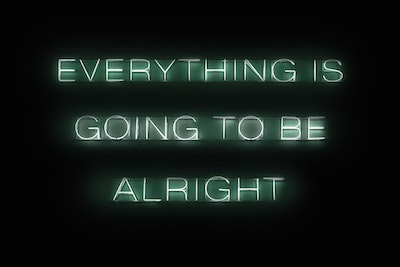What is the controversy?
All right vs. alright vs. allright: No one argues that they sound the same. But do they mean the same? Are they interchangeable?
Today, there are those who say, yes, these words mean the same, and there are those who say, no, these words do not mean the same. And then, there are those who say that they sometimes mean the same and sometimes have completely different definitions.

A bit of background.
Historically, the spelling of English words, in general, was inconsistent and fluid for hundreds of years until the 18th century. With Johnson’s dictionary in Britain and the Merriam-Webster dictionary in the United States, spelling began to be standardized.
When the dust settled, the two-word phrase all right was considered the correct and acceptable spelling. The one-word form, alright, appeared in writing shortly after when it was first used by Mark Twain in 1865, in the short story, “The Celebrated Jumping Frog of Calaveras County.”
Let’s compare.
We will start with something straightforward. Allright is not a word, so don’t ever use it under any circumstances. Period. Everyone agrees.
All right was the original two-word form and alright is a one-word contraction of the two-word phrase.
All right is universally accepted. From the traditionalist point of view, this is the only acceptable form of the word, used both formally and informally, and it can be found in professional, academic, and creative writing.
Although alright is widely considered substandard, it is becoming more accepted in the context of modern day writing and spelling. It is used in informal settings, such as articles, creative works, written dialogue, text messages, and social media posts.
All right can be found in the dictionary. Alright is found in the dictionary, as well. Google Docs corrects all right to alright, and MS Word corrects alright to all right.
Some people feel that alright should not be used.
Do all right and alright mean the same thing?
Most say that the answer is, “No”.
There are experts who believe that all right and alright are two separate words that share a history and pronunciation but not a definition. Thus, both words should be respected and used independently of one another, each in its own right.
Let’s compare these separate but equal words. Notice that the two terms have both been placed at the end of identical sentences but have altogether different meanings.
Other examples include:
“Alright! We are going to the circus!” (Here, it is used to mean “hurray”.)
“Is it all right if I go to the party?” (Here, it is used to ask permission.)
It may be that all right and alright are often lumped together with other similar English phrases that also start with the word all, each phrase having its two-word version and its shortened version. These English phrases do not have the same meaning.
For example, all ways (which means “every possible way”) does not mean the same as always (which means “at all times”); all together (which means “everything at the same place and time”) does not mean the same thing as altogether (which means “wholly, completely”); and all ready (which means “everyone being ready”) does not mean the same as already (which means “something that has happened before now.”)
Why the confusion?
It is easy to get confused because there are also experts who believe that all right and alright have the same meaning, sometimes demoting the word alright to the status of imposter, redundant and inferior, to be avoided in most civilized circumstances.
In the following example, both forms are used as an adverb to describe an action that has been done well: “I did all right on my science experiment.” Used in this way, it is interchangeable with the sentence, “I did alright on my science experiment.”
So, how do I know when to use all right and when to use alright?
Overall, if you want to be sure that everything is all right in your writing, it is alright to use all right as your default. Specifically, if you need to sound more formal and traditional, use all right. If you want to sound more casual, use alright.
Just don’t use allright because it is definitely all wrong.








Have a discussion about this article with the community:
Report Comment
We're doing our best to make sure our content is useful, accurate and safe.
If by any chance you spot an inappropriate comment while navigating through our website please use this form to let us know, and we'll take care of it shortly.
Attachment
You need to be logged in to favorite.
Log In